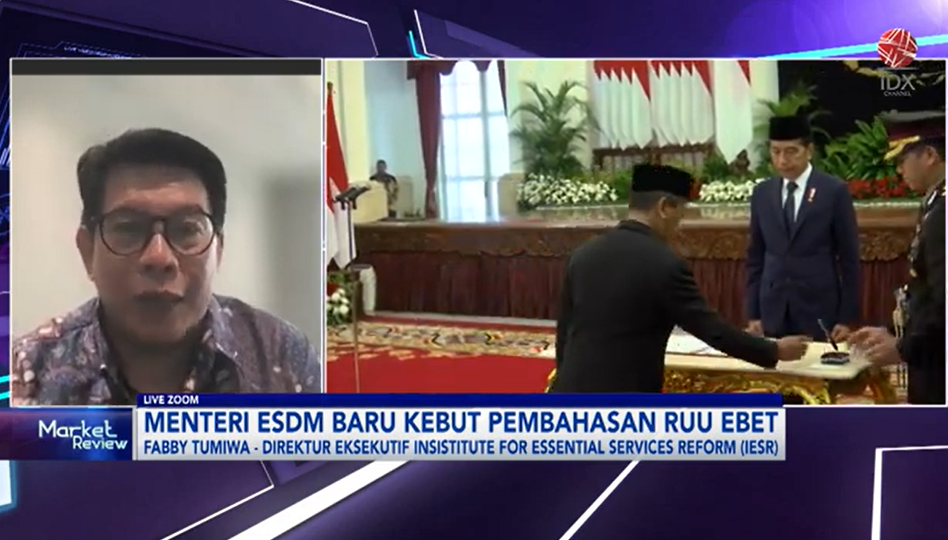Jakarta, August 22, 2024 – Minister of Energy and Mineral Resources Bahlil Lahadalia has just been inaugurated by President Joko Widodo (Jokowi) to replace Arifin Tasrif on Monday (19/8/2024). After officially taking office as Minister of Energy and Mineral Resources, Bahlil immediately asked his staff to accelerate the completion of the New Energy and Renewable Energy Bill (EBET Bill).
In response, the Executive Director of the Institute for Essential Services Reform (IESR), emphasized the importance of the EBET Bill as a legal foundation that will support the development of renewable energy in Indonesia. Fabby highlighted that this bill is the basis for achieving the net zero emission target by 2060 or even earlier, in accordance with the government’s commitment.
“Without a strong policy and regulatory framework, renewable energy development can be hampered and even stagnate. In long-term energy development plans such as the National Energy General Plan (RUEN) and the National Electricity General Plan (RUKN), nearly 90 percent of energy supply is expected to come from renewable energy. Therefore, this transformation requires enormous infrastructure and investment, as well as a supportive policy and regulatory framework,” Fabby added in IDX Channel’s Market Review on Wednesday (21/8/2024).
Furthermore, Fabby is optimistic that the EBET Bill can be passed in September 2024, although he admits that there are still challenges to be faced, especially regarding the inclusion of the use of shared power grids (power wheeling) to the EBET Bill. According to him, power wheeling is an important element in the development of renewable energy because it provides flexibility for developers to sell electricity directly to consumers without having to go through PLN.
“With the inclusion of power wheeling in the EBET Bill, renewable energy development can be more flexible, allowing innovation without having to sell directly to PLN. However, even though this bill was passed, we still need to wait for the completion of government regulations (PP) and other regulations to actually implement this law. In addition, it also requires further regulation to ensure grid reliability and investment sustainability,” Fabby explained.
According to Fabby, with the passing of the EBET Bill, Indonesia is expected to accelerate its energy transition towards cleaner and more sustainable energy, although it still has a long and challenging way to go. Strong policies and regulations will be key in attracting investment and building the necessary infrastructure to support the development of renewable energy in the future.
“Actually, 2024 and 2025 are very crucial periods for Indonesia to achieve the 23 percent renewable energy mix target. Unfortunately, we are late in meeting this target. It must be admitted that the development of renewable energy has been slow during the 10 years of President Jokowi’s administration, with a lower growth rate than previous administrations, although efforts such as the utilization of biofuels have begun,” Fabby said.

